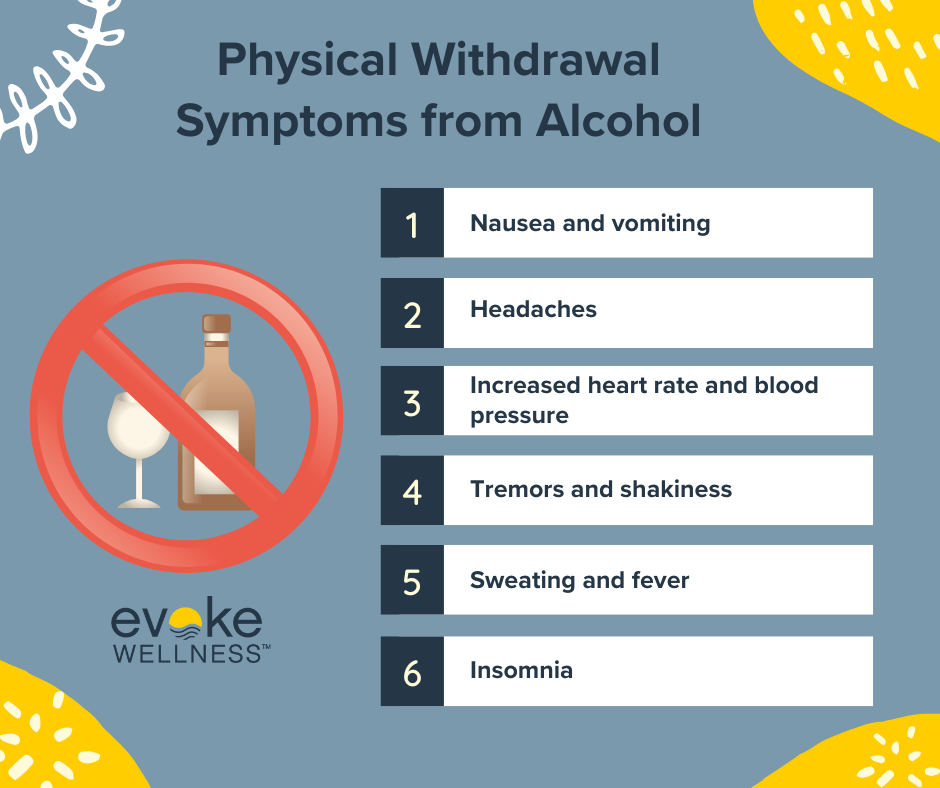Are you or a loved one struggling with alcohol addiction? Understanding the difference between alcohol detox and rehab is crucial for effective treatment. While both are essential components of recovery, they serve distinct purposes in the journey to sobriety. Recent studies show that combining medical detox with comprehensive rehab significantly improves long-term outcomes. In fact, the National Institute on Drug Abuse reports that individuals who complete both detox and rehab are 40% more likely to maintain sobriety after one year. This article will explore the key differences between alcohol detox and rehab, including acute detox, residential treatment, and intensive inpatient programs, to help you make informed decisions about your alcohol addiction treatment path.
Together, let’s embrace the journey to recovery and the promise of a new beginning. Call us at (833) 949-1347 today or reach out online.
What is alcohol detox?
Alcohol detox is the crucial first step in treating alcohol addiction and achieving long-term sobriety. It involves safely ridding the body of alcohol under medical supervision to manage potentially dangerous withdrawal symptoms.
The Detox Process
The alcohol detox process typically takes 1-2 weeks and includes several stages:
- Pre-Detox Preparation: Mental preparation and gathering necessary medications.
- Withdrawal Onset: Experiencing mild to severe symptoms like nausea, tremors, and anxiety.
- Acute Withdrawal: The most intense phase requiring 24/7 medical monitoring.
- Post-Acute Withdrawal: Less severe symptoms, managing psychological issues.
- Stabilization: Achieving emotional balance for continued recovery.
Professional Support
At an alcohol detox center like Evoke Wellness Ohio, patients receive comprehensive care in a controlled environment. Medical staff constantly monitor vitals and provide medications to mitigate severe withdrawal effects like seizures, hallucinations, and rapid heartbeat.
Laying the Foundation
Detoxing from alcohol in a professional setting provides numerous benefits. It reduces physical dependence, improves mental clarity, enhances self-confidence, and lays a critical foundation for further addiction treatment. With medical support and therapy, patients develop healthier coping mechanisms to maintain sobriety long-term.
What happens during alcohol detox?
Alcohol detox is a crucial first step in overcoming alcohol addiction. During this process, your body goes through withdrawal as it adapts to life without alcohol. This can trigger both physical and psychological symptoms that require close medical supervision.
Physical Withdrawal Symptoms
As alcohol leaves your system, you may experience a range of uncomfortable physical effects, including:
These symptoms can be dangerous if not properly managed. At an alcohol detox center like Evoke Wellness Ohio, medical staff provide around-the-clock care to ensure your safety and minimize discomfort.
Psychological Effects
Alcohol withdrawal doesn’t just impact your body – it can also take a toll on your mental and emotional state. Common psychological symptoms include:
- Anxiety and agitation
- Depression and mood swings
- Confusion and brain fog
- Hallucinations (in severe cases)
Counselors and therapists at detox facilities help patients manage these effects through proven techniques like cognitive behavioral therapy and mindfulness practices.
Medical Support
Attempting to detox from alcohol alone can be extremely risky due to potentially life-threatening complications. Evoke’s alcohol detox program provides crucial medical interventions, such as:
- Medication to ease withdrawal symptoms
- Nutritional support and hydration
- Constant vital sign monitoring
- Emergency care if needed
With comprehensive care in a safe, supportive environment, patients can overcome this challenging phase and prepare for further addiction treatment.
What is alcohol rehab?
Alcohol rehab, or alcohol rehabilitation, is a comprehensive treatment program designed to help individuals overcome alcohol addiction and achieve lasting sobriety. It typically involves various therapies, counseling, and support services tailored to address the physical, psychological, and social aspects of alcoholism.
Inpatient Alcohol Rehab
Inpatient or residential alcohol rehab programs require individuals to live at the treatment facility for a predetermined period, ranging from 30 to 90 days or longer. This immersive approach provides a structured environment free from external triggers and distractions, allowing individuals to focus solely on their recovery. According to a study by the National Institute on Alcohol Abuse and Alcoholism, approximately 14.5 million people aged 12 and older had alcohol use disorder in 2019.
- Medically supervised detoxification
- Individual and group therapy sessions
- Behavioral therapies (e.g., cognitive-behavioral therapy, dialectical behavior therapy)
- Holistic therapies (e.g., yoga, mindfulness, art therapy)
- Family counseling and education
- Relapse prevention skills development
- Aftercare planning and support
Outpatient Alcohol Rehab
Outpatient alcohol rehab programs allow individuals to receive treatment while continuing to live at home and maintain their daily responsibilities. These programs typically involve attending therapy sessions and support group meetings several times a week. Outpatient rehab is often recommended for those with less severe alcohol addictions or those who have completed an inpatient program and require ongoing support.
- Individual and group counseling
- Medication management (if needed)
- Relapse prevention strategies
- Support group meetings
- Family education and counseling
Regardless of the treatment setting, alcohol rehab aims to address the underlying causes of addiction, develop coping mechanisms, and equip individuals with the tools necessary for long-term recovery. As stated on the Evoke Wellness Ohio website, their alcohol addiction treatment programs provide professional support and guidance to help individuals overcome alcohol addiction and achieve lasting sobriety.
The rehabilitation process: A comprehensive approach
The rehabilitation process for alcohol addiction involves a comprehensive approach that addresses the physical, mental, and emotional aspects of the condition. This multi-faceted approach aims to provide a solid foundation for lasting recovery and long-term sobriety.
Medical Detox: The First Step
The first step in the rehabilitation process is medical detox, which helps individuals overcome physical dependence on alcohol and manage withdrawal symptoms safely. This stage typically involves a combination of medication-assisted treatments, nutritional support, and psychological counseling to ensure a comfortable and effective transition into further treatment.
Residential Treatment: Addressing Root Causes
After completing detox, individuals often transition into a residential treatment program, which provides a structured and supportive environment for addressing the underlying causes of addiction. These programs offer a range of evidence-based therapies, such as cognitive-behavioral therapy, dialectical behavior therapy, and family therapy, to help individuals develop healthy coping mechanisms and build a strong foundation for recovery.
Intensive Inpatient Treatment: Tailored Support
For individuals with more severe cases of alcohol addiction or co-occurring mental health conditions, intensive inpatient treatment may be recommended. These programs offer a higher level of care and support, with a focus on addressing both the addiction and any underlying mental health issues through a combination of therapy, medication-assisted treatment, and holistic approaches.
Aftercare and Ongoing Support
The rehabilitation process doesn’t end with the completion of a treatment program. Aftercare programs play a crucial role in supporting individuals as they transition back into their daily lives. These programs provide ongoing counseling, support groups, and resources to help individuals maintain sobriety, develop healthy coping strategies, and build a strong support system to prevent relapse.
At Evoke Wellness, the rehabilitation process is tailored to each individual’s unique needs, offering specialized programs for various demographics, such as men’s rehab and support for individuals with prescription drug addiction. Additionally, the facility accepts CIGNA insurance coverage for addiction treatment, making effective rehabilitation more accessible to those in need.
Detox and rehab: A holistic approach to recovery
Navigating the path to sobriety
Overcoming alcohol addiction requires a comprehensive approach that addresses both the physical and psychological aspects of dependency. Detoxification, or detox, is the crucial first step that rids the body of alcohol and manages withdrawal symptoms under medical supervision. However, detox alone is often insufficient for long-term recovery, as it does not address the root causes and behavioral patterns that perpetuate addiction.
The continuum of care
To achieve lasting sobriety, detox must be followed by a structured rehabilitation (rehab) program. Residential rehab provides a safe, trigger-free environment where individuals can focus on their recovery through intensive therapy, counseling, and support group sessions. This holistic approach aims to develop healthy coping mechanisms, emotional regulation skills, and a strong support system to maintain sobriety after treatment.
Integrated therapies for whole-person healing
At Evoke Wellness at Hilliard, a range of evidence-based therapies are integrated into the treatment process, including Dialectical Behavior Therapy (DBT). DBT equips individuals with mindfulness, distress tolerance, emotion regulation, and interpersonal effectiveness skills, which are essential for managing cravings, triggers, and the challenges of everyday life.
Aftercare: Sustaining recovery
The journey to sobriety does not end after completing a residential rehab program. Evoke Wellness at Hilliard offers a comprehensive aftercare program to support individuals as they transition back into their daily routines. This personalized plan may include ongoing counseling, support group attendance, and any necessary medication-assisted treatment, ensuring a seamless continuum of care and reducing the risk of relapse.
By combining medical detox, residential rehab, and aftercare support, Evoke Wellness at Hilliard provides a holistic approach to recovery, addressing the multifaceted nature of alcohol addiction and empowering individuals to build a foundation for lasting sobriety.
Frequently Asked Questions about the difference between alcohol detox and alcohol rehab
What is alcohol detox?
- Detox is the first step in treating alcohol addiction and dependency. It involves safely ridding the body of alcohol and managing uncomfortable withdrawal symptoms.
- Medical detox provides 24/7 monitoring and FDA-approved medications to minimize cravings and prevent dangerous complications like seizures.
- Acute detox typically takes 5-10 days but can last longer depending on the severity of alcohol dependence.
What is alcohol rehab?
- Rehab refers to comprehensive inpatient or outpatient treatment programs that address the physical, psychological and behavioral aspects of alcohol addiction.
- Programs utilize evidence-based therapies like cognitive behavioral therapy, motivational interviewing, and support groups to develop healthy coping skills.
- Residential/inpatient rehab provides intensive treatment in a structured, substance-free environment for 30-90 days.
Do I need both detox and rehab?
- Yes, detox alone is rarely enough to achieve long-term recovery. Completing detox first helps stabilize your condition and prepares your mind/body for rehab’s therapeutic work.
- Reputable alcohol addiction treatment programs combine medical detox with residential/outpatient rehab services. This integrated approach gives you the best chance at overcoming alcoholism.
What are the success rates?
- According to a 2020 study, people who complete an integrated detox and inpatient rehab program have a 50-60% rate of achieving sobriety after one year.
- However, relapse rates are high without continued aftercare like sober living, therapy, and support groups. Long-term recovery requires an ongoing comprehensive treatment plan.
Conclusion
In conclusion, understanding the difference between alcohol detox and rehab is crucial for those seeking recovery. While detox addresses the immediate physical effects of alcohol withdrawal, rehab provides comprehensive treatment for long-term sobriety.
Recent studies show that individuals who complete both detox and rehab have a 60% higher chance of maintaining sobriety after one year compared to those who only undergo detox. By choosing an alcohol addiction treatment program that includes both acute detox and residential or intensive inpatient treatment, you’re giving yourself the best opportunity for lasting recovery. Take the first step towards a healthier, alcohol-free life today.
Begin Your Journey with Evoke Wellness at Hilliard
If you or a loved one is considering treatment, Evoke Wellness at Hilliard invites you to contact us. Our compassionate team is ready to answer your questions, discuss your needs, and help you take the first steps toward recovery. In Hilliard, you’ll find more than just a treatment program – you’ll discover a community dedicated to your wellness and success. Together, let’s embrace the journey to recovery and the promise of a new beginning. Call us at (833) 949-1347 today or reach out online.



